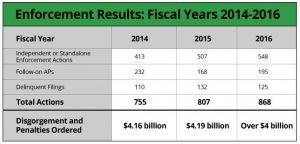 According to BrokerCheck records kept by The Financial Industry Regulatory Authority (FINRA) advisor Jay Jordan (Jordan), in August 2017, was sanctioned by FINRA and had a permanent bar imposed in connections with allegations of unsuitable investments in leveraged exchanged traded funds (Non-Traditional ETFs) based on the investor’s investment objectives, financial situation, risk tolerance, experience, and investment needs. Jordan was previously terminated by his employer WFG Investments, Inc. (WFG). WFG stated that Jordan was terminated due to his failure to follow certain policies of the firm including reporting a customer complaint, unauthorized use of personal email, and mischaracterization of an outside business activity.
According to BrokerCheck records kept by The Financial Industry Regulatory Authority (FINRA) advisor Jay Jordan (Jordan), in August 2017, was sanctioned by FINRA and had a permanent bar imposed in connections with allegations of unsuitable investments in leveraged exchanged traded funds (Non-Traditional ETFs) based on the investor’s investment objectives, financial situation, risk tolerance, experience, and investment needs. Jordan was previously terminated by his employer WFG Investments, Inc. (WFG). WFG stated that Jordan was terminated due to his failure to follow certain policies of the firm including reporting a customer complaint, unauthorized use of personal email, and mischaracterization of an outside business activity.
In addition, Jordan has been subject to 14 customer complaints concerning his securities activity. These investors have alleged millions in losses most likely stemming from FINRA’s allegations of unsuitable Non-Tradition ETF trading.
According to FINRA, Jordan become convinced that an economic crisis or stock market collapse was imminent and recommended concentrated Non-Traditional ETFs so that they clients could benefit from rising oil prices, rising interest rates, and declining equity values. FINRA alleged that in June 2012, Jordan made widespread recommendations to his customers that they purchase Non-Traditional ETFs including: (1) UWTI (three times the daily performance of the S&P GSCI Crude Oil Index ER); (2) BOIL (two times the daily performance of the Bloomberg Natural Gas Subindex); and UGAZ (three times the daily performance of the S&P GSCI Natural Gas Index); (3) TBT and TMV (two and three times, respectively, the daily performance of the inverse of the ICE U.S. Treasury 20+ Year Bond Index); (4) SDS (two times the inverse of the daily performance of the S&P 500); (5) QID (two times the inverse of the daily performance of the NASDAQ-100 index); and (6) VIXY (matches the performance of the S&P 500 Short-Term Futures Index, which seeks to measure short-term volatility).
 The securities attorneys at Gana Weinstein LLP are investigating potential claims against former Capital Securities Management Inc. broker Teryl Trenchard (Trenchard). According to Trenchard’s BrokerCheck records, he was identified in a Financial Industry Regulatory Authority (FINRA) investigation on March 10, 2017. FINRA is examining alleged fraudulent activities of Trenchard.
The securities attorneys at Gana Weinstein LLP are investigating potential claims against former Capital Securities Management Inc. broker Teryl Trenchard (Trenchard). According to Trenchard’s BrokerCheck records, he was identified in a Financial Industry Regulatory Authority (FINRA) investigation on March 10, 2017. FINRA is examining alleged fraudulent activities of Trenchard. Securities Lawyers Blog
Securities Lawyers Blog










